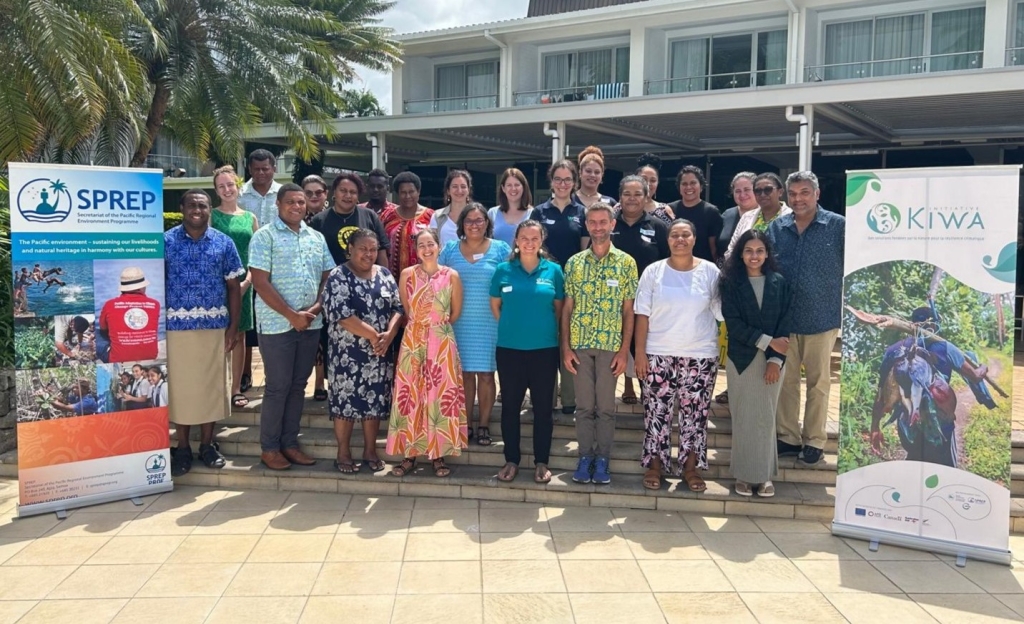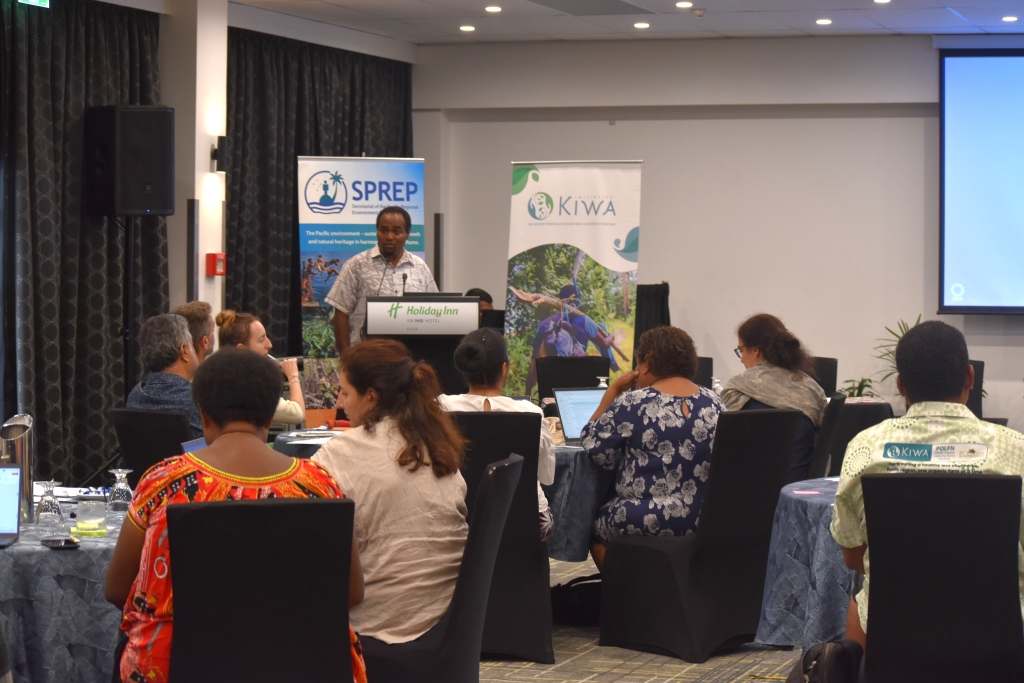
Suva, Fiji - October 23, 2024 – The Kiwa Initiative through the Secretariat of the Pacific Regional Environment Programme (SPREP) convened its third regional workshop focused on integrating Gender Equity, Disability, and Social Inclusion (GEDSI) and human rights within Nature-based Solutions (NbS) for climate resilience. This pivotal workshop gathers most of the Kiwa project teams and aimed at sharing lessons learned so far from the work undertaken to better integrate GEDSI in Kiwa funded projects. By doing so, this regional event aims at reinforcing the initiative’s commitment to achieving the United Nations Sustainable Development Goals, particularly on Climate Action, Gender Equality, and Partnerships.
Advancing GEDSI in Pacific climate projects
Pacific Island leaders have pledged their support to gender equality through various commitments, including the Pacific Platform for Action on Gender Equality and Women’s Human Rights 2018-2030 and the Pacific Framework for the Rights of Persons with Disabilities 2016-2025. The workshop seeks to enhance regional capacities and foster cooperation to effectively address GEDSI issues in climate adaptation projects.
Agence Française de Développement (AFD) Group representative based in Fiji, Ms. Elodie Vitalis in her opening remarks stated, “This workshop presents an opportunity to exchange experiences and knowledge regarding GEDSI as well as what has been achieved and the challenges faced. It is essential that we collectively learn from our wide variety of experiences and readily overcome barriers together.
This also provides an additional opportunity of bringing all actors committed to this topic together in a dedicated community of practice, fostering peer-to-peer exchange on new learnings and experiences. This is essential for participants as they express their needs so that they can be supported effectively according to their contexts.”

Facilitated by Talanoa Consulting and SPREP, the workshop gathered 25 members of the project management teams, partners and GEDSI focal points under the Kiwa Initiative, which currently supports 17 local and 5 regional projects across 16 Pacific Island countries and territories. Participants discussed integrating GEDSI into NbS, sharing valuable lessons learned and developing key recommendations to guide future initiatives.
Workshop highlights
The workshop engaged experts on the empowerment of marginalized groups, shared insights through storytelling from the field, created actionable recommendations for GEDSI and human rights integration at project and regional levels, and enhanced GEDSI progress through Environmental and Social Commitments, for instance through the development of GEDSI Action Plans and setting up grievance mechanisms.
Marshall Islands Conservation Society Executive Director, Ms. Dolores Debrum-Kattil speaking about the workshop said, “Each community is unique, so it’s important to educate ourselves before engaging with them. We must consider their social, environmental, and economic contexts and keep our expectations realistic. When communities are given the opportunity and support to contribute, they will participate. We always prioritise diverse voices, ensuring that the perspectives of women and girls are included. Our experience shows that beginning consultations with GEDSI topics and allowing for self-identification fosters meaningful discussions, encourages engagement, and adds an element of enjoyment to the process.”
SPREP Project Coordinator for the Kiwa Initiative, Ms. Mathilde Kraft said, “It is wonderful to see NbS practitioners from across coming together to share their experience and support each other in finding new ideas and strategies to ensure their Kiwa projects have fair benefits for people and nature. There is much to learn from the efforts and dedication of this community of professionals to advance GEDSI in Pacific NbS.”
Exchanging GEDSI practices across different Pacific countries has proven to be highly valuable and has offered a great opportunity for mutual learning. Each organisation brings its unique background, expertise, and knowledge to the table. It is crucial to recognise both the progress made and the improvements achieved, taking into account each participant’s starting point and the journey they have undertaken.

The outcomes from this workshop will be promoted regionally and internationally, amplifying the voices of Pacific communities on GEDSI, climate change, and biodiversity, and informing future initiatives. The workshop was hosted at the Holiday Inn, Suva, Fiji on 22 and 23 October 2024, and gathered partners from the 8 Kiwa regional projects under implementation: Pacific Community for POLFN - Pacific Organic Learning Farmers Network; SPREP for PEBACC+ - Pacific Ecosystem-based Adaptation to Climate Change plus project; Wildlife Conservation Society offices in Melanesia, Solomon Islands and Papua New Guinea for WISH+ - Watershed Interventions for Systems Health plus project; Birdlife International and NatureFiji for INSPIRE - Invasive Species Management for Resilient Ecosystems; OneReef WorldWide Stewardship and Marshall Islands Conservation Society for MiCOAST - Micronesian Community-based Fisheries Management as a NbS for Coastal Resilience; Conservation International Fiji for RESTORE; and Live and Learn Fiji for EMPOWER.
You can access materials on progressing human rights and GEDSI in NbS on the SPREP Virtual Library: Catalogue Record by Project | Virtual Library (sprep.org)
For more information, please contact:
SPREP - Project Coordinator, Kiwa Initiative, Ms. Matilde Kraft at [email protected]
SPREP - Communications Officer, PEBACC+, Ms. Setaita Tavanabola at [email protected]